I’m posting this here as well as on the Open Learning Blog. Note, Opinions are my own, not those of my unit or institution. Apologies for the formatting, I am testing out the new Block editor in WordPress.
On the 10th day of #12Apps, my true love gave to me: PubPub, your hub to community publishing! It’s an easy app to make your research stronger. It’s an app to create your own community or participate in multiple communities of practice among researchers, publish books and journals, and host conferences.

What is PubPub?
PubPub gives research communities of all stripes and sizes a simple, affordable, and nonprofit alternative to existing publishing models and tools.
— THE PUBPUB TEAM HTTPS://WWW.PUBPUB.ORG/ABOUT
I know what you’re thinking. Perhaps you’ve met members of the Open Learning Team at a pub at academic conferences, or even joined us on the requisite pub walking tour in search of sustenance, and to keep tabs on the Leafs game. No, I’m afraid this blog post is not about that kind of pub. But, we definitely could entertain a lively conversation about PubPub in a pub, if you like!
Punning aside, PubPub is an academically supported, open-source, and end-to-end alternative to proprietary publishing models and platforms. Developed with strong institutional support from MIT’s Knowledge Futures Group, a joint initiative of the MIT Press and MIT Media Lab, when PubPub says they are open source, they mean business–paradoxical as that sounds–releasing all of their code on Github. PubPub operates on a non-profit, free forever, researcher-friendly business model. How cool is that?
Moreover, PubPub actually “gets” the true nature of our work as academics (when we are not teaching or doing service): the iterative process of conducting research, drafting manuscripts, reviewing the work of our peers, and publishing. While we can and do conduct individual research as independent scholars, the design of PubPub draws on the fundamental insight that scientific research and knowledge creation is a collaborative enterprise.
As a computer-supported collaborative learning (CSCL) researcher focused on investigating knowledge creation using iterative design-based research methods, clearly, I’ve already drank the Kool-Aid. But how can I convince you, dear reader, to give PubPub a whirl?
We know that collaboration cultivates research quality, enhances resource utilization, and increases our impact (Hsiehchen, Espinoza, & Hsieh, 2015). Circulating pre-prints on non-commercial servers (e.g. bioRxiv, OSF Preprints, SocArXiv) facilitates conversations and feedback on a manuscript prior to submission (Maggio, Artino, & Driessen, 2018). Sharing our work early, before it is finalized through publication, is what PubPub calls “community publishing.” Let’s take a look at an example of such a PubPub community, next.
Responsive Science
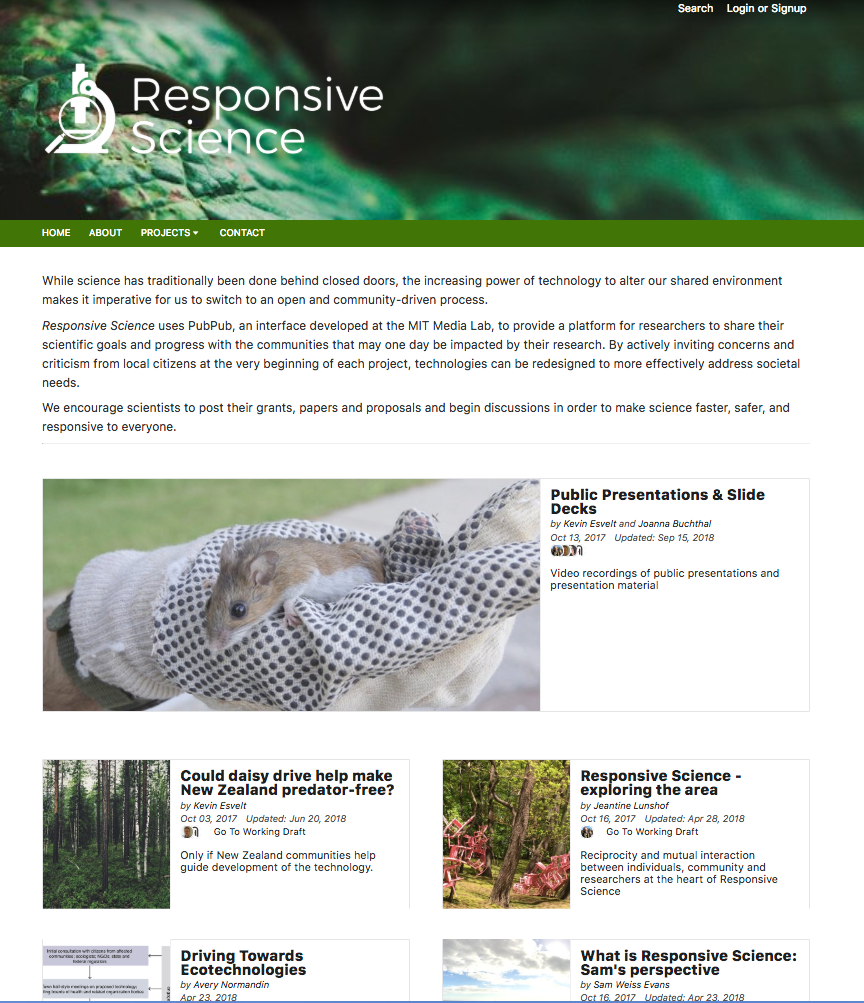
Responsive Science is a community that uses PubPub as
“…a platform for researchers to share their scientific goals and progress with the communities that may one day be impacted by their research. By actively inviting concerns and criticism from local citizens at the very beginning of each projects, technologies can be redesigned to more effectively address societal needs.”
Imagine posting grants, papers, and proposals to engage the very people who will be impacted by your research findings.
For instance, check out video recordings of the Mice Against Ticks team at community meetings with the citizens of Nantucket, Martha’s Vineyard, and Cuttyhunk. These do not follow the style of an average community meeting. They take a rather lively, musical turn in some cases:
Well, that particular PubPub example is a tough act to follow, isn’t it?
In Science in Action: How to follow scientists and engineers through society, Bruno Latour (1987) conducts enquiry on how someone–a researcher–utters a statement and follow how another character, one that they dub the “dissenter,” believe or disbelieve what was said. Responsive science turns the notion of “intra-group discourse” among members of a research lab on its head by promoting “inter-group discourse” (Woodruff & Meyer, 1997) with a larger audience comprised of real people in the community, people who might be somewhat more unbiased and critical of your research than say, your fellow lab mates working on the same project. Nevertheless, such critiques can help you hone your dialectical argumentation and persuasion, thus enabling you talk about your research in ways that intelligent people not in your discipline can readily understand.
As a segue to an entirely different kind of example, I’ll let you in on a secret. Virtually all of you know me as a social scientist or even a “real” scientist (several of my pubs are included in the dblp computer science bibliography). However, did you know that I have a MA and BA in English Literature? Yeah, think serious paradigm wars unfolding in my head.
Frankenbook
To tell you the truth, when I first saw the title, Frankenbook, on the PubPub site, I thought of “Frankenfish.” Not the 2004 American horror film, but rather of stories of genetically-modified salmon that my colleague from the Canadian Food and Inspection Agency would regale me with on his visits to the Learning Centre where I worked for Health Canada in the BC-Yukon Region.
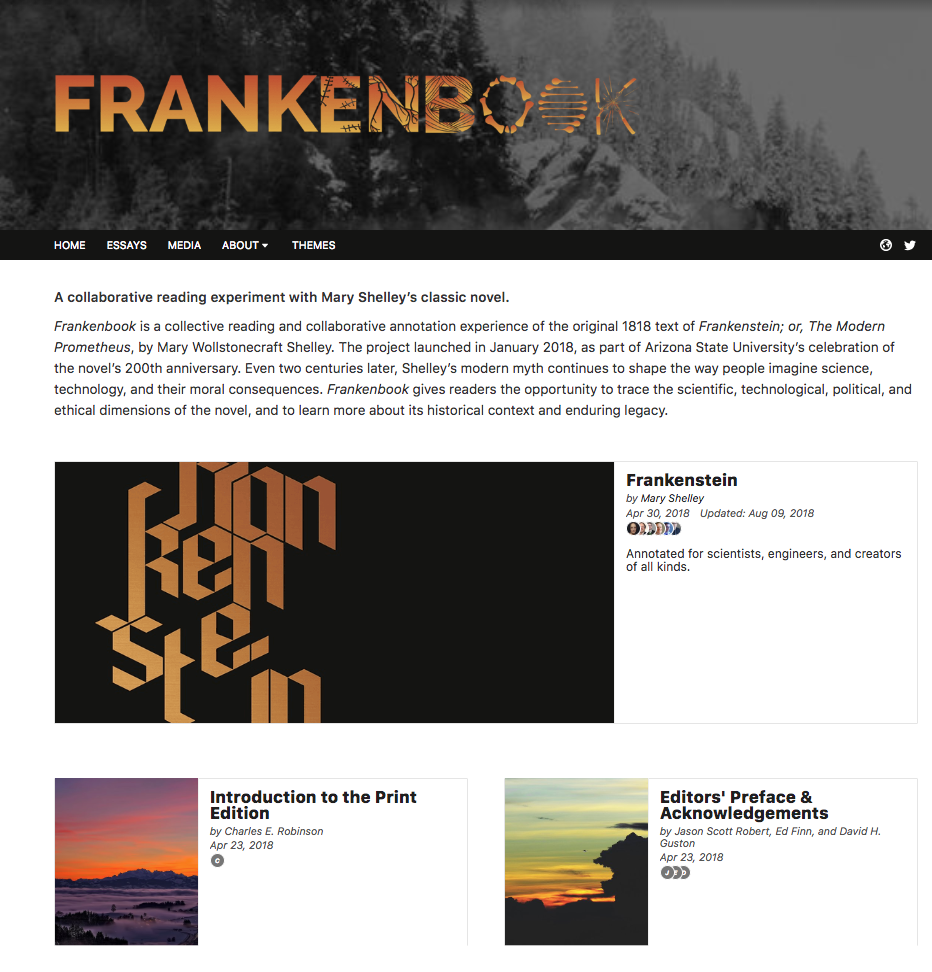
Imagine my delight to find out that Frankenbook is
“..a collective reading and collaborative annotation experience of the original 1818 text of Frankenstein; or, The Modern Prometheus, by Mary Wollstonecraft Shelley”
This project was launched in January 2018 as part of Arizona State University’s celebration of the novel’s 200th anniversary. This PubPub community allows scientists, engineers, and creators of all kinds to explore–through annotations and discussion–Shelley’s first novel (yes, she started writing it at age 18; think about your first-year student writing this novel) from scientific, technological, political, and ethical dimensions, as well as its historical context Two hundred years later, Shelley’s text inspires us in films, parodies, cartoons, costumes, memes, gifs, etc.
ANNOTATIONS
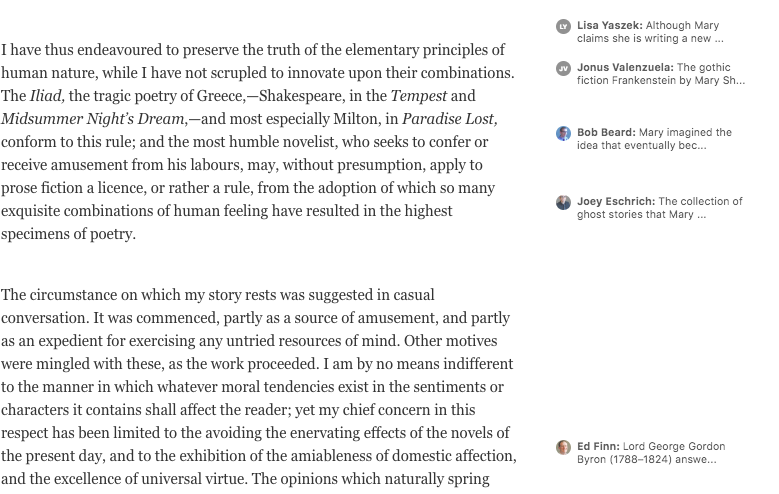
Examples of #public Annotations on the book, Frankenstein, at Frankenbook.org/pub/book
The annotations on the 1818 text stay focused, unlike my own inattention and shifting frames of reference. I can’t resist connecting Shelley’s the Romantic era novel with pop culture referents like the brilliant 1974 comic scene, “It’s Frankensteen,” in the scene where Dr. Frederick Frankenstein (Gene Wilder) meets Igor (character not in the original book).
DISCUSSIONS
The discussion posts are many (413), multi-vocal, and ongoing, with posts continuing many months after the project launched.
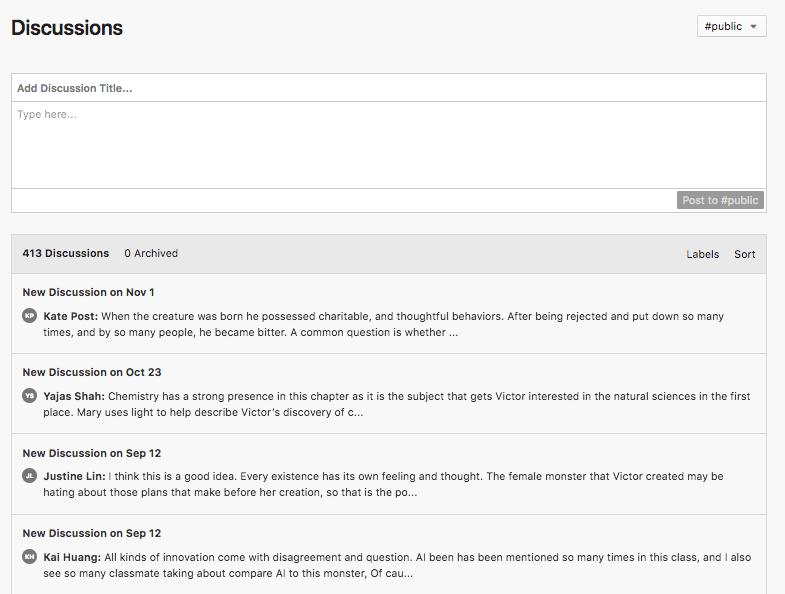
Both the annotations and discussions are more legible than the private annotations that I madly scribbled in pencil on hard copy books as a student. Like this:
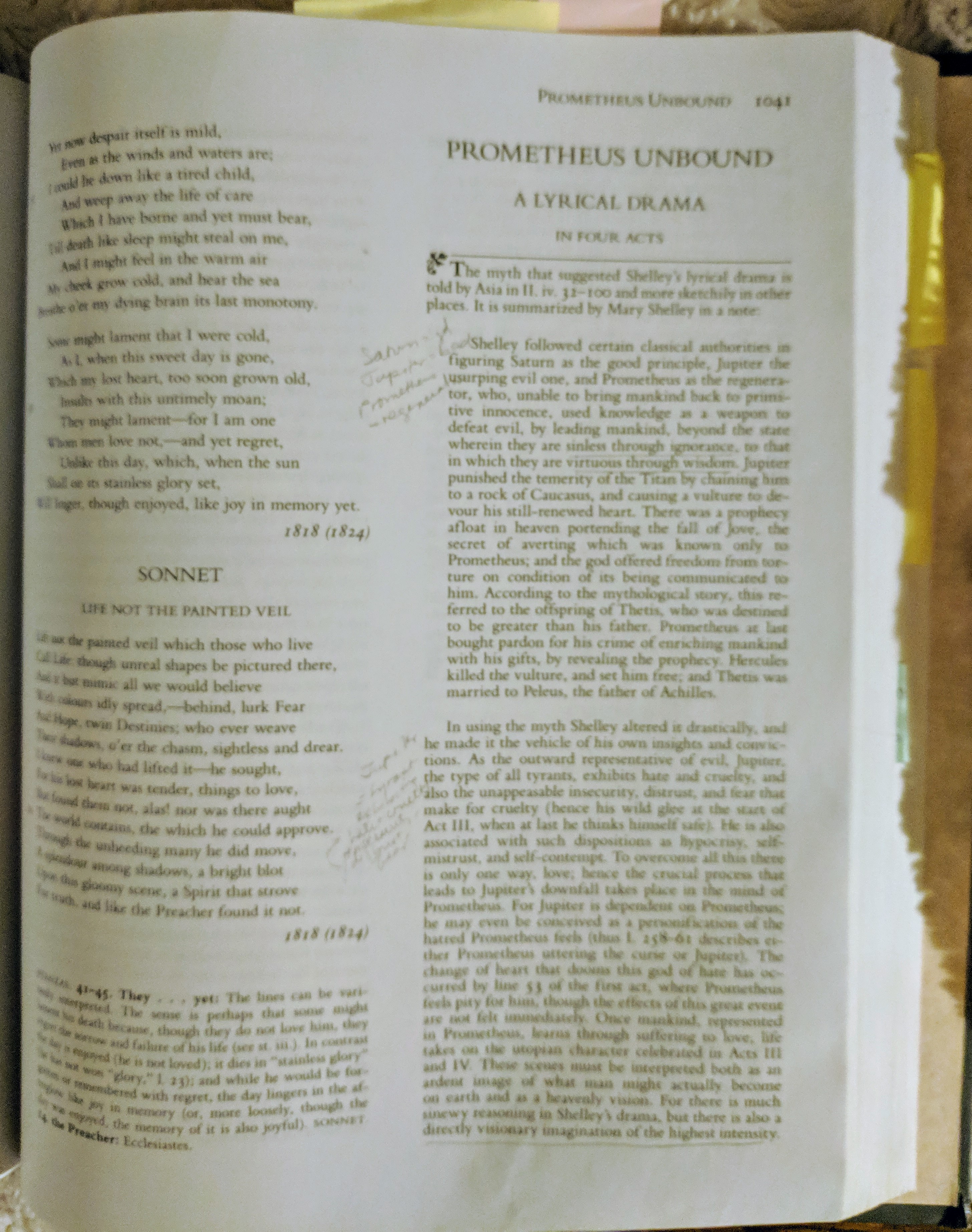
Note: Mary Shelley’s work and Frankenstein are on the “marginal syllabus,” outside of the main body of Perkins’ English Romantic Writers. Oddly, works by Mary Wollstonecraft (Shelley’s maiden name) are in included in the main body of the book
IN SUM…
While I haven’t yet fully explored PubPub’s capabilities for embedding rich media content (e.g. H5P in PressBooks), or LTI integration with a Learning Management System (LMS) like Hypothes.is, I feel confident in saying that PubPub is worthy of the hubbub that it’s creating in open education circles.
So keep an eye on PubPub, it has a lot of potential to transform the way you enculturate learners into your discipline, whether you research and teach in the humanities and social sciences, or in science and engineering.


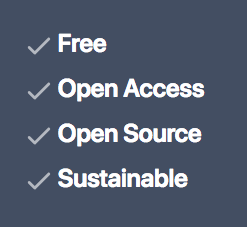



Leave a Reply